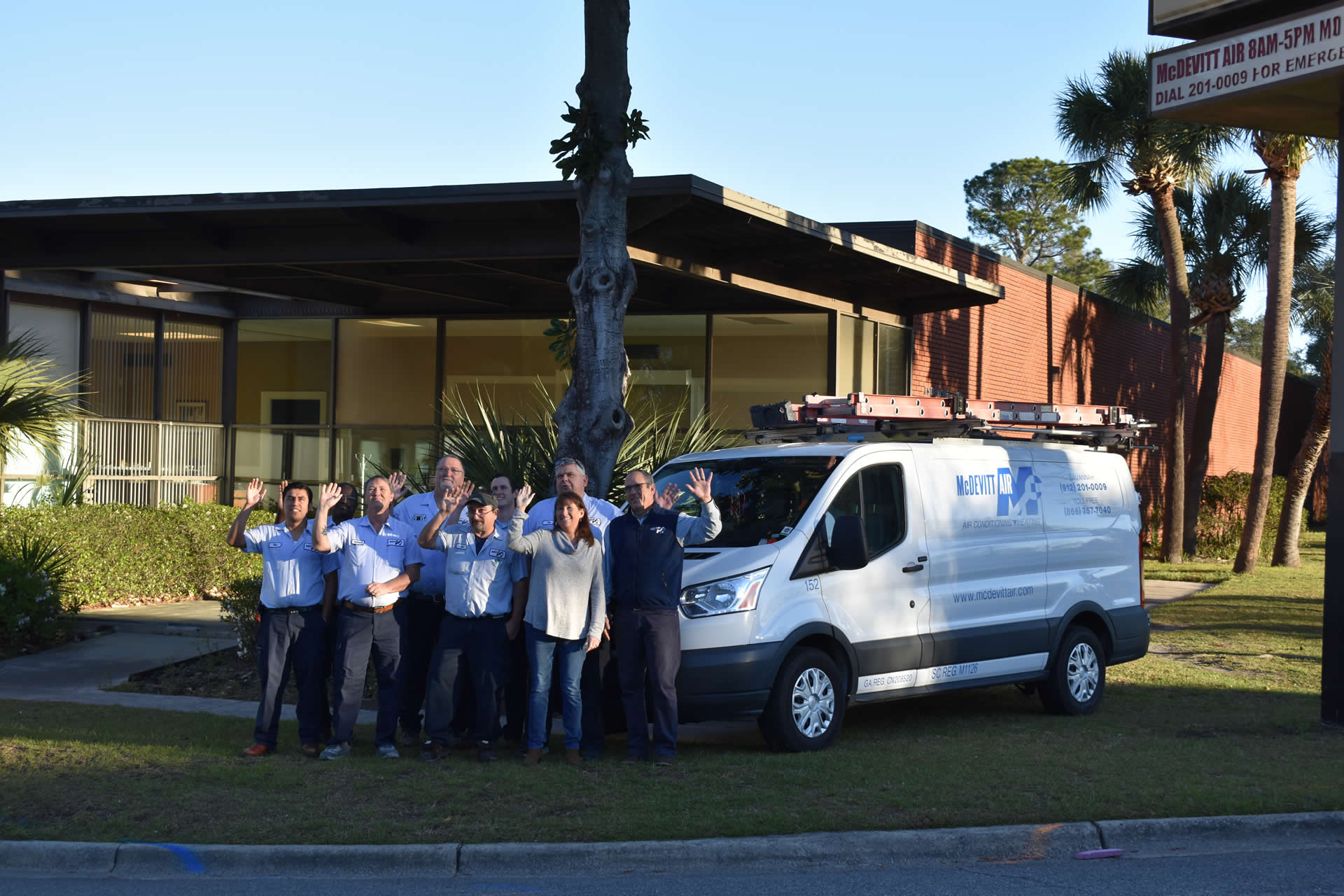Some of the newest and most efficient heating and cooling systems on the market today are geothermal heat pumps. These systems literally pull heat out of the ground to keep your home warm in the winter, then pump excess heat into the Earth to cool you down in the summer. Getting set up with a geothermal system is a substantial investment, but many Savannah GA homeowners find it’s well worth the effort.
The Cooling Cycle
Before you can understand how a geothermal heat pump works, you need a basic understanding of the cooling cycle. In any air conditioning system, the cooling process begins when refrigerant chemicals absorb heat at the evaporator coil, becoming gaseous in the process. The system then pumps the refrigerant to the condenser coil where it becomes liquid, releasing heat outside the house. As the refrigerant cycles through this process over and over again, it removes more and more heat from the home, cooling the air.
A heat pump, any heat pump, is basically a reversible air conditioner. During the cooling season, the machine collects heat from inside the house and pumps it outside just like a standard AC unit. During the heating season, the cycle runs backward, collecting heat from the outside air and pumping it into the house. In other words, this reversible cycle allows a heat pump to pull double duty. The downside is that the hotter or colder the outside air gets, the harder the heat pump has to work to maintain a comfortable temperature.
Geothermal heat pumps use the same principle as standard heat pumps, but instead of using the outside air, they take advantage of the stable temperatures found deep inside the Earth. During the cooling season, the heat pump collects heat inside the house and releases it into the Earth through its underground loop. During the heating season, the loop collects heat underground, which the system then pumps into the house. Because underground temperatures aren’t prone to sudden shifts as air temperatures are, a geothermal system offers highly efficient cooling even in the hottest Georgia summer.
Types of Geothermal Heat Pumps
The most important feature of any geothermal system is its loop configuration. Three major types exist, each with its own benefits and drawbacks.
Horizontal loop systems are perhaps the most commonly used systems for residential heating and cooling. The horizontal loop is buried just a few feet underground and spread out over a large portion of the property. Because there’s minimal excavation required, horizontal loop systems tend to be relatively inexpensive to install; however, because they’re so shallow, they’re somewhat prone to losing efficiency thanks to temperature changes in the surface soil. Still, if you have a large enough property to accommodate the loop, a horizontal system is likely the right choice.
Vertical loop systems have their underground components buried much deeper, often 50 feet or more. Because the loop doesn’t spread out very far, these systems are commonly used on smaller properties, often for commercial buildings. The extensive excavation required makes them significantly more expensive to install. On the plus side, once a vertical loop system is up and running, it will offer very efficient heating and cooling because the temperatures deep underground are very stable. In the long term, even vertical loop systems can pay for themselves.
If there’s a body of water on your property, you may be able to choose a third type of system: the pond/lake loop. These geothermal heat pumps tend to be the cheapest of all to install, and they offer highly efficient cooling thanks to the stable temperature of the water. Of course, not every body of water is suitable for geothermal climate control. A pond or lake needs to meet certain minimum standards of volume, depth and quality.
Benefits of Geothermal Heating and Cooling
In addition to being some of the most efficient systems on the market today, geothermal heat pumps offer an appealing degree of cost certainty. Their efficiency isn’t affected much by the weather, so you won’t be caught off-guard by especially high utility costs in a very hot summer or unusually cold winter.
Moreover, once a geothermal system is up and running, it tends to stay up and running for a long time. The underground components last for decades and require little or no maintenance. Even the above-ground components require only occasional service, and if properly maintained, they can last up to 20 years. In comparison, a conventional air conditioner typically lasts eight to 10 years.
Going Geothermal with McDevitt Air
At McDevitt Air, we’re proud to offer geothermal heating and cooling systems to our friends and neighbors in the Savannah GA area. We’re proud to be a Carrier Factory Authorized Dealer, an honor that’s only given to top HVAC companies, and most of our technicians hold our industry’s most highly regarded credential, NATE certification. In short, we have the training, expertise and experience needed to set you up with a terrific geothermal system that meets your home’s needs.
Geothermal HVAC is unquestionably a major investment, but many families find that the benefits of geothermal heating and cooling outweigh the initial cost. Between the durability and efficiency of a geothermal system, you’ll find yourself breathing easier for decades to come, and in the long term, your budget benefit as well. If you’re interested in learning more about what geothermal HVAC can do for your home, just give us a call today.


